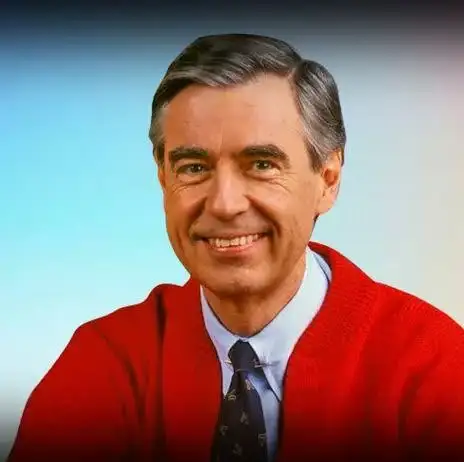
The Untethered Path of the Self-Sovereign Individual
by warelock
Table of Contents
The Existential Crisis of Isolation
The other day, I was thinking about my general contempt for humanity. That kind of thing, over time, leads to unhealthy isolation. So I thought long and hard about human socialization and the difficulties I've had with it. Feeling as an outsider has been the norm for my whole life.
Social Game Value Choice Frameworks
I discovered that there are seven categories of human socialization that are considered to be what humanity feels resigned to labeling the "social game". In actuality, each framework is a spectrum of value choices we all make, largely consistently in the long run.
Self-Presentation
- Constructed Identity ←→ Spontaneous Expression
- Describes how much a person curates or filters their self-image versus acting without self-monitoring.
Social scenario: Alex and Bob are attending a birthday party for their friend Joanne.
- Alex laughs at everyone’s jokes and keeps his opinions mild.
- Bob brings up a niche hobby no one relates to and doesn’t notice when people drift away.
→ Alex curates to avoid friction and be liked, gaining short-term ease and group approval; Bob expresses freely to stay true to himself, but risks social distance in the moment.
Emotional Exchange
- Affective Alignment ←→ Affective Transparency
- Measures whether emotional interaction aims to harmonize and soothe vs. reveal and share internal emotional states.
Social scenario: Alex and Bob are talking to their coworker Dana, who just got laid off.
- Alex puts a hand on Dana’s shoulder and says, “That sucks — let me know if I can help.”
- Bob quietly shares that he cried for days after getting fired last year.
→ Alex aims to soothe and stabilize, creating short-term comfort; Bob seeks emotional truth and connection, potentially deepening trust but at the cost of temporary awkwardness.
Cognitive Orientation
- Sense-Making Comfort ←→ Analytical Clarity
- Describes whether understanding is intuitive, metaphorical, and meaning-oriented vs. structured, precise, and conceptually defined.
Social scenario: Alex and Bob just left a movie theater with their friend group.
- Alex says, “That ending hit me — it just made sense somehow.”
- Bob lists three plot holes and explains how the final scene could have been structured better.
→ Alex follows intuitive meaning for social resonance and conversational flow; Bob seeks clarity through structured analysis, sacrificing relatability for intellectual precision.
Dialogue Strategy
- Persuasive Framing ←→ Collaborative Inquiry
- Ranges from strategic, persuasive discourse to co-exploratory, open-ended dialogue.
Social scenario: Alex and Bob are at a dinner party where people start debating climate policy.
- Alex makes a confident case for his view and counters objections quickly.
- Bob listens, then asks, “What do you all think the real goal of policy should be?”
→ Alex argues to persuade and affirm his stance, gaining control and influence in the moment; Bob opens space for collective inquiry, delaying certainty to pursue shared understanding.
Communication Explicitness
- Implied Context ←→ Literal Clarity
- Captures the range from high-context, implicit communication to low-context, explicit messaging.
Social scenario: Alex and Bob are texting with friends about where to meet for lunch.
- Alex types, “Cool, see you guys around noon?”
- Bob replies, “I'll be at Bento House at 12:15, inside, second table from the left.”
→ Alex relies on shared context for speed and rapport, which works until miscommunication happens; Bob values clarity to prevent confusion, but may come across as rigid or overly formal.
Group Orientation
- Belonging-Seeking ←→ Individuated Navigation
- Ranges from behavior geared toward inclusion, harmony, and group validation to independent behavior based on internal standards.
Social scenario: Alex and Bob are getting ready for their friend Maya’s themed costume party.
- Alex picks a safe, matching outfit after checking what everyone else is wearing.
- Bob wears something totally different and doesn’t check with anyone first.
→ Alex adapts to feel connected and avoid standing out, gaining group cohesion; Bob follows internal standards for self-expression, at the risk of social misalignment.
Relational Focus
- Emotional Bonding ←→ Value Alignment
- Ranges from forming connections through shared feeling and experience to forming them through shared purpose, values, and direction.
Social scenario: Alex and Bob just met someone new at a community volunteer event.
- Alex thinks, “They seemed really warm and friendly — I’d hang out with them.”
- Bob thinks, “They care about justice the way I do — we could build something meaningful.”
→ Alex seeks emotional connection and familiarity, making fast friends; Bob filters for deeper alignment in values, which may limit casual connections but lead to purpose-driven bonds.
My take on these frameworks
I've observed that most humans seem to default to a form of normalized, fear-based pursuit of validation from others, unable to self-validate, playing the "social game" in a very particular way (ie "Alex"). My best guess is that this is a type of legacy tribal behavior, which is a kind of deep-seeded baggage, left over from pre-civilization days.
Back then, decisions to include people into or exclude people from one's tribe had to be done quickly and in a "best-effort" sense. They were a series of quick, poor tradeoffs needed to ensure efficient survival of those in the tribe against the dark, largely unknown forces of cruel, unfeeling nature. It was form of rough-and-ready corner cutting set up against survival pressures.
However, being trade-offs, the costs that seemed justified then are hardly justified in a civilized world. There's a kind of "blinding action" that happens when people make poor choices, if seemingly everyone around you are making those same poor choices. It's kind of like complaining about paying taxes when everyone else has to pay taxes as well. If we're all equally suffering, what makes my suffering special enough to stand out? Misery loves company, can easily blind us to our mistakes, and can even run cover for those mistakes, encouraging others to continue to make those mistakes as well.
The name of the game here seems to be social conformity at the expense of principled action. Most people seem to not have an ability to self-validate, so they seek validation from others, often slavishly. What's gained in this compromise appears to be what satisfies the most basic of human needs:
- Recognition
- Comfort
- Validation
Those who don't conform are ostracized, relegated to the fringes of humanity. They, being human as well, also have these most basic of needs (ie. "Bob"). It's just that being considered "outsiders", they are consistenly unable to get those needs met by those considered socially normal. However, It's mentally weak to assume that being a social outlier must be due to lack of skill or deficiency of character. One may initally end up in that circumstance merely by means of neurodivergence, personality type, or as a trauma response. However, a social outlier may also implicitly value long-term principle over short-term gains at the destructive expense of themselves or others.
There is a clear difference between people who default to destructive, normalized social behavior, bent on short-term gains and those who consciously value principle, instead. This is not a difference of degree, but a difference in kind. The fundamental value choice here is binary, one or the other. However, within the group of evolved social outliers, there can exist strata of differences of degree, out to the most extreme cases. Often, people who have far-reaching effects on humanity come from this group of evolved social outliers. I'd say that being an evolved social outlier is a necessary, but not sufficient circumstance to indicate this type of "greatness", but famous examples in history illustrate a strong correlation (ie. Nikola Tesla, Elon Musk).
In any case, it's easy to see the value of making one's largely implicit social value choices explicit, especially if one is a social outlier. Consistently not getting one's most basic of human needs met is a chronic, but correctable tragedy. Identifying this early in life allows one to learn to not hold humanity in contempt, no matter how justified the level of disgust we feel. Contempt kills connection and also kills the possibility of getting one's needs met. Seeing that it's not likely to get those needs met from those who elicit such disgust is actually a positive thing. It highlights the need for consistently being a sort of explicitly expressed "beacon" of what kind of principled behavior both you and other evolved social outliers want to see in the world, but usually don't. This allows one to be a sort of "breath of fresh air" to those other social outliers starved for the exact thing you were starved for, giving rise to connection of like minds and at least the opportunity of mutually meeting each other's human needs.
Meet Alex and Bob. Alex is not Bob and Bob is not Alex. They are not simply different in degree, they are different in kind:
Images: Mr. Rogers, TV personality and child psychology advocate aka "Alex" (left) vs. Edward Snowden aka "Bob", revealed illegal mass government surveillance aka "Bob" (right)
Isolating Contempt or Connecting Discernment
It turns out that the disgust I feel towards the social behavior humanity at-large falls into by default is actually justified. However, the trap is that if you feed that disgust too much, you end up steeped in comtempt for humanity. Contempt kills connection and leads to unhealthy isolation. The trick is to not resist the disgust, but rather temper it with compassion for the fear-sopped masses, realizing that you're actually not alone. Buried somewhere in those masses are those both like me and that yearn for those like me.
We all need connection, but for someone like me, this can never be satisfied by trying to seek that connection by compromising my core values, trying to play the "social game" the default way. What I crave is recognition for myself, exactly as I am. The important thing to realize is that there are those out there who choose not to "fit in" and crave that exact kind of recognition along with the relief in recognizing someone who plays the "social game" by a different set of value choices. The real trick is to fully be yourself and find the courage to show up to those extremely few, worthy enough to see you. Essentially, one needs to "be the change in the world one wants to see."
Social Game Typology Quiz
I recently wrote a psychological quiz to help people identify their social game value choices and the social frameworks those fit. Here is the source code.
===> TAKE THE QUIZ ONLINE <===
I encourage you to take the test and learn more about your place in the human scheme of things.
I highly suggest taking the test, then wait an hour or two, letting the results sink in. Then realize that when you took then test, you may have been under a sort of self-imposed influence of editing your responses to fit what others expect you to do or say. Keep in mind that when you take such a test, that it's just between you and your computer screen. Your quiz answers are not recorded or shared in any way, unless you yourself went out of your way to do so. Then with this firmly in mind, imagine a world where you could get away with being your more true, authentic self in your words and deeds, without automatically facing having to pay some social price for that. Then take the test again. You might be surprised at the results. It's well known that humans act differently if they even think that they might be watched and/or judged. It will really help you to zero in on your most accurate results, minimizing social bias.
At the end of the quiz, you'll see your quiz results. At the bottom of that page will be a special Discord Chat invitation link. If you click on that link, you'll be directed to join the Discord Chat server for this blog, where your server user profile will show a badge reflecting your quiz results. I'd wait until the second time you take the test to click the link to join the Discord Chat server, as described above. There are also chat rooms for discussion of this social game typology topic. I invite you to join in the discussion and connect with like minds.
Philosophical Warrior?
It turns out that I'm the kind of guy unafraid to blaze my own trail, leaving the masses of humanity in the dust. The eventual reward for carrying the weight of objective truth in a world that often trades in mutual illusion, deliberately living a life with eyes wide open, rejecting compromise of core values, emotional camouflage, and instant gratification? Real recognition from those that actually matter.
- Not attraction for your mask, but for your mind.
- Not acceptance for your performance, but for your principle.
- Not love for what you can provide, but for who you are.
I am a man who plays the human "social game" not by rejecting it, but by redefining the rules based on objective values. I walk the edge between emotional intensity and cognitive lucidity, refusing to sacrifice either. My path is difficult, often lonely—but not aimless. I build a life that is earned, not curated. I seek to see and be seen.
- I don’t speak to impress. I speak to connect—if it’s real.
- I’ve spent too long watching people contort themselves for applause, wondering if anyone else was as exhausted by it as I was.
- I’m not here to be liked by many. I’m here to be _understood_ by a few.
- I value truth over charm, clarity over comfort, earned depth over surface ritual.
- I ache for conversation that matters and connection that doesn’t vanish under pressure.
- If you’ve ever felt like the only one holding back the tide of performance with nothing but your integrity—
- I see you. And I hope you see me, too.
Philosophical warrior? Romantic realist? Or maybe just a man who refused to lie.
I essentially "walk the quiet line".
Music for the Free Mind
I recently created and produced some songs, with associated music videos, illustrating my personal journey of the self-made soul. I hope you like them.
Here is my music video channel.
NOTICE: A.I. tools were used during the creative process of these music videos



